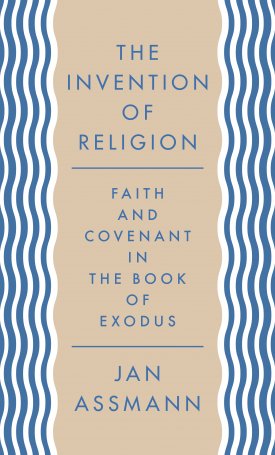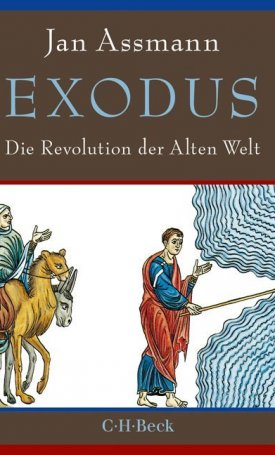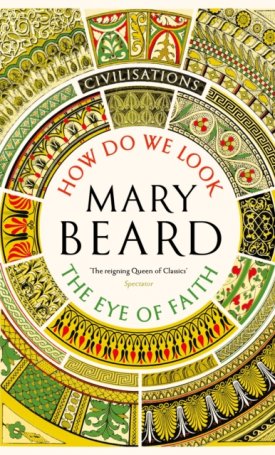The Invention of Religion - Faith and Covenant in the Book of Exodus
ISBN: 9780691203195
Nyelv: angol
Méret: 156*240
Tömeg: 622 g
Oldalszám: 424
Megjelenés éve: 2018
The Invention of Religion - Faith and Covenant in the Book of Exodus
A groundbreaking account of how the Book of Exodus shaped fundamental aspects of Judaism, Christianity, and Islam
The Book of Exodus may be the most consequential story ever told. But its spectacular moments of heaven-sent plagues and parting seas overshadow its true significance, says Jan Assmann, a leading historian of ancient religion. The story of Moses guiding the enslaved children of Israel out of captivity to become God`s chosen people is the foundation of an entirely new idea of religion, one that lives on today in many of the world`s faiths. The Invention of Religion sheds new light on ancient scriptures to show how Exodus has shaped fundamental understandings of monotheistic practice and belief.
Assmann delves into the enduring mythic power of the Exodus narrative, examining the text`s compositional history and calling attention to distinctive motifs and dichotomies: enslavement and redemption; belief and doubt; proper worship and idolatry; loyalty and betrayal. Revelation is a central theme--the revelation of God`s power in miracles, of God`s presence in the burning bush, and of God`s chosen dwelling among the Israelites in the vision of the tabernacle. Above all, it is God`s covenant with Israel—the binding obligation of the Israelites to acknowledge God as their redeemer and obey His law—that is Exodus`s most encompassing and transformative idea, one that challenged basic assumptions about humankind`s relationship to the divine in the ancient world.
The Invention of Religion is a powerful account of how ideas of faith, revelation, and covenant, first introduced in Exodus, shaped Judaism and were later adopted by Christianity and Islam to form the bedrock of the world`s Abrahamic religions.
Jan Assmann is honorary professor of cultural studies at the University of Konstanz and professor emeritus of Egyptology at the University of Heidelberg, where he taught for nearly three decades. He is the author of many books on ancient history and religion, including From Akhenaten to Moses, Cultural Memory and Early Civilization, and Moses the Egyptian.
List of Illustrations xi
Foreword xv
Introduction 1
PART ONE | GENERAL FOUNDATIONS
Chapter One
Theme and Structure of the Book of Exodus 11
Exodus (Chapters 1–15) 11
God Reveals His Name—God Reveals His Power
Sinai—Calling, Covenant, and Law (Chapters 15–24) 20
The Way to Sinai—God Reveals the Covenant
Divine Presence (Chapters 25–40) 25
God Reveals the Tabernacle—Revelation of the Divine Being:
Breach and Reconciliation—The Tabernacle Is Built—The
Revelation Concludes: God’s Permanent Presence
Chapter Two
The Historical Background: Event and Remembrance 32
Memories 34
The Hyksos—Amarna—Ḥabiru/ʿapiru—Waves of Migration,
Sea Peoples—Theocracy
Experiences 47
Miraculous Redemption from Mortal Danger—The “Secession
of the Northern Tribes”: The First Occasion for Remembering
the Exodus?—Israel Refounded: The Principal Occasion for
Remembering the Exodus
© Copyright, Princeton University Press. No part of this book may be
distributed, posted, or reproduced in any form by digital or mechanical
means without prior written permission of the publisher.
For general queries, contact webmaster@press.princeton.edu
viii contents
Chapter Three
Textual History and the History of Meaning 55
Redaction as “Cultivation of Meaning”: Textual Layering in the Bible 55
From Myth to Canon and Back 74
The “Mosaic Distinctions” and the Monotheism of Loyalty 79
PART T WO | THE EXODUS
Chapter Four
The Tribulations of the Israelites and the Birth of the Savior 93
Bondage in Egypt 93
The Birth of the Child 106
Moses’s Childhood and Upbringing 114
Chapter Five
God Reveals His Name: Moses at the Burning Bush 117
Moses Is Called 117
God Renews His Promise 123
Excursus I: The Burning Bush in Schoenberg’s Opera Moses und Aron 126
I Am That I Am 131
Chapter Six
Signs and Wonders: God Reveals His Power 138
The Plagues of Egypt 138
The Egyptian-Hellenistic Tradition 154
The Institution of the Passover Feast and the Passover Haggadah 161
Excursus II: Moses’s Song of Thanksgiving and Handel’s Oratorio
Israel in Egypt 173
PART THREE | THE COVENANT
Chapter Seven
The Calling of the People 181
Holy People and Portable Fatherland 181
The Torah as Memory 191
The Development of the Covenant Idea: Bridal and Filial Metaphors 196
© Copyright, Princeton University Press. No part of this book may be
distributed, posted, or reproduced in any form by digital or mechanical
means without prior written permission of the publisher.
For general queries, contact webmaster@press.princeton.edu
contents ix
Chapter Eight
Treaty and Law 204
The Deconstruction of Kingship: Treaty and Law as the
Constitution of God’s People 204
The Ten Commandments 209
The Covenant Code and the Solemnization of the Covenant 224
Excursus III: “Excarnation” and Theologization of the Law 236
Excursus IV: The Decalogue and Egyptian Norms for Judging
the Dead 240
Chapter Nine
Resistance: Moses and the Violent Fate of the Prophets 253
Murmuring in the Desert 253
The Murder of Moses? 271
The Violent Fate of the Prophets 276
Chapter Ten
The Institutionalization of Divine Presence 287
YHWH Comes to Dwell among His People 287
The Golden Calf: The Original Sin against the Covenant 302
Excursus V: The Golden Calf in Schoenberg’s Opera Moses und Aron 317
A “Book of the Temple”? 322
Conclusion 327
Narrative, Historical, and Performative Truth 327
Revelation 329
Out of Egypt 332
Exodus as Political Myth 334
Exodus and Monotheism 335
Notes 339
Bibliography 365
Illustration Credits 383
Index 385
Kategória: Kultúra / kultúraelmélet, Történelem / kultúrtörténet, Történelem / ókor, Vallás / judaisztika, Vallás / kereszténység, Vallás / ókori vallások






















